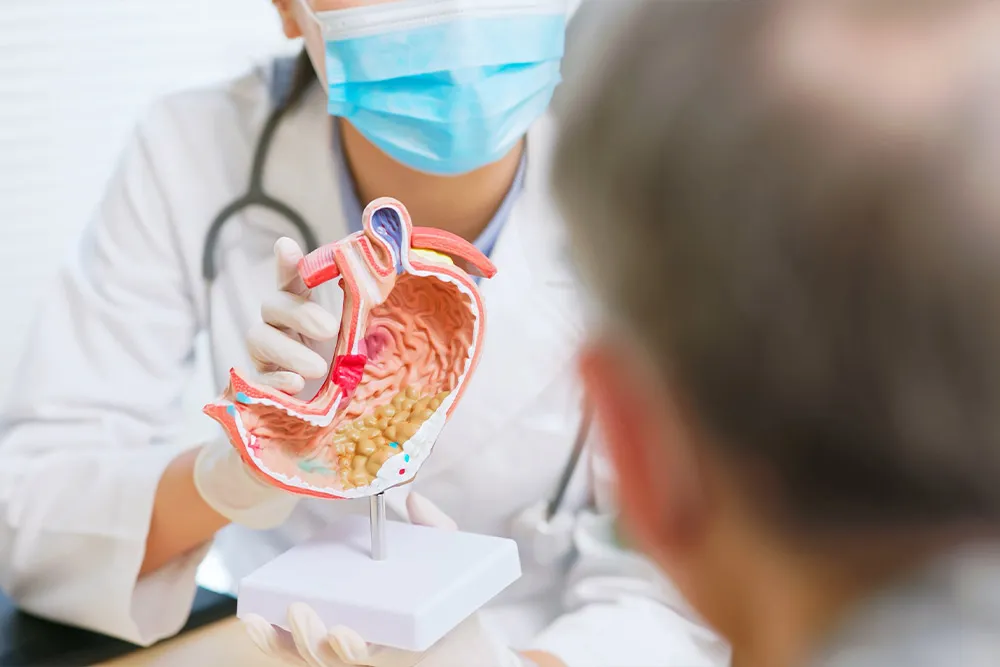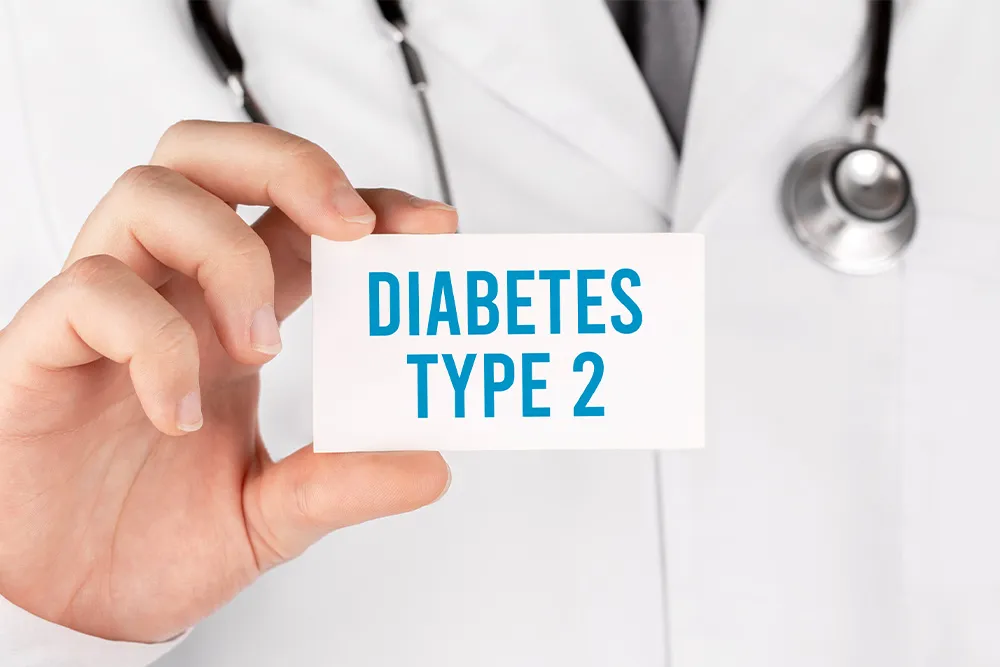For many people living with Type 2 Diabetes, the daily routine of blood sugar checks and medication can feel like a lifelong sentence. It’s natural to wonder if there’s a way out, a true cure. You may have heard stories about weight-loss surgery leading to dramatic improvements, sparking the big question: Can bariatric surgery cure type 2 diabetes?
The answer is nuanced, and it hinges on one crucial word: remission, not cure. In this article, you will learn exactly how procedures like the gastric sleeve and bypass can lead to type 2 diabetes remission, the critical difference between a cure and remission, and who is typically a candidate for this life-changing treatment.
Understanding Type 2 Diabetes
Type 2 Diabetes is not just about high blood sugar. It’s a metabolic condition where your body struggles to use insulin properly (insulin resistance), and over time, the pancreas can’t make enough to keep up. For many, especially when combined with genetic factors and carrying excess weight, it becomes a chronic struggle managed with medication, diet, and constant vigilance.
How Does Bariatric Surgery Treat Type 2 Diabetes?
Treating type 2 diabetes with weight loss surgery isn’t just about the weight you lose. While significant weight reduction is a huge benefit, the surgery itself triggers profound metabolic changes. Bariatric surgery is, at its core, a metabolic surgery. It actively reprograms your body’s internal chemistry to better manage blood sugar, and it often starts working within days, long before the scales show a major change.
So, how does it work? Let’s look at the two powerful ways these procedures go beyond simple restriction.
1. The Powerful Hormonal Shift (The Foregut Theory)
Think of your digestive system as a sophisticated messaging system. When food passes through certain sections, it triggers hormones that affect your blood sugar. In many people with Type 2 Diabetes, this messaging system is out of balance.
Procedures like the Gastric Bypass and Gastric Sleeve physically change the pathway of food. This change means food bypasses or reduces contact with the upper part of your intestine (the duodenum and jejunum). This area, when constantly exposed to food, can send signals that promote insulin resistance.
By altering this pathway, the surgery triggers a beneficial cascade of new hormonal signals. Key gut hormones like GLP-1 (Glucagon-like Peptide-1) increase dramatically. Think of GLP-1 as a helpful manager for your pancreas:
- It tells your pancreas, “It’s time to release the right amount of insulin!”
- It tells your liver, “Stop releasing so much stored sugar!”
- It even slows down stomach emptying and makes you feel fuller for longer.
This is why many patients see their blood sugar levels improve radically within the first week post-surgery. It’s not magic, it’s your body’s natural chemistry being rebalanced.
2. The Calorie Restriction & Nutrient Sensing Effect (The Hindgut Theory)
The other key player is how quickly food now reaches the lower part of your intestine (the hindgut). After surgery, undigested food arrives there much faster. This early delivery further stimulates the release of beneficial hormones like GLP-1 and PYY, which enhance insulin sensitivity and suppress appetite.
Simultaneously, the surgery creates a new, smaller stomach pouch. This means you simply can’t eat large portions, leading to a sharp reduction in calorie intake. This immediate, significant calorie restriction itself helps lower blood sugar and fat in the liver, reducing the workload on your struggling pancreas. It’s like giving an overworked machine a much-needed break, allowing it to recover and function more effectively.
In essence, treating type 2 diabetes with weight loss surgery is a dual-action therapy. It’s not just a mechanical fix, it’s a biological one. It corrects the faulty signalling that contributes to insulin resistance, giving you the powerful tool you need to achieve lasting remission.
Auralia’s Expert Advice:
“We often tell patients that the surgery gives their pancreas a ‘holiday.’ The combination of consuming fewer calories and the profound hormonal changes removes the constant demand on the organ. This break is what allows the body to reset its insulin production and sensitivity”.
While the benefits of bariatric surgery for type 2 diabetes are significant, it’s important to also understand the potential risks and complications that comes along.
What Does the Research Say?
Major international studies, including the landmark UK-based ‘DiRECT’ trial, have consistently shown that significant weight loss is key to putting Type 2 Diabetes into remission. In Ireland, bariatric surgery is part of the HSE Model of Care for obesity for eligible patients. For people with type 2 diabetes, surgery leads to diabetes remission in a substantial proportion (within 1–2 years), improves health-related quality of life, and is associated with reduced risks of obesity-related complications.

Which Type of Weight-Loss Surgery Is Best for Type 2 Diabetes?
There’s no one-size-fits-all answer. The best procedure depends on your individual health profile, BMI, and the specific characteristics of your diabetes. However, two procedures lead the way in managing this condition.
How Does Gastric Sleeve Treat Type 2 Diabetes?
The Gastric Sleeve (Sleeve Gastrectomy) is a popular and effective procedure. It works by removing a large portion of the stomach, creating a smaller, sleeve-shaped pouch. This restricts food intake and, crucially, removes the part of the stomach that produces the “hunger hormone” ghrelin.
The result? Patients experience less hunger, feel full faster, and see excellent weight loss. This, combined with beneficial changes in gut hormones, makes the gastric sleeve a powerful tool for achieving type 2 diabetes remission, particularly for those with a lower BMI or more recently diagnosed condition.
How Does Gastric Bypass Treat Type 2 Diabetes?
The Gastric Bypass (Roux-en-Y) is often considered the gold standard for treating type 2 diabetes. It’s a two-part procedure: first, a small stomach pouch is created, then a section of the small intestine is connected to it. This “bypasses” a portion of the intestine.
This dual-action approach leads to powerful restriction and malabsorption. More importantly, it causes a significant shift in the gut hormones that influence insulin and blood sugar control. Studies consistently show that gastric bypass has one of the highest rates of inducing rapid and long-term remission of type 2 diabetes.
Auralia’s Expert Advice:
“The gastric bypass offers a powerful ‘metabolic’ effect beyond weight loss. For a patient with more severe or long-standing diabetes, it can be the most effective option for regaining glycemic control. However, it requires a lifelong commitment to vitamin and mineral supplementation, which we meticulously guide our patients through at Auralia.”
Some patients choose a non-surgical route like Ozempic to manage type 2 diabetes and lose weight. See how it stacks up in our Ozempic vs bariatric surgery comparison.
Is Bariatric Surgery a Permanent Solution for Type 2 Diabetes?
This is the most critical distinction to understand: remission is not a cure. A cure would mean the diabetes is gone forever and you could return to any lifestyle without consequence. Remission, which is what bariatric surgery can achieve, is a state where blood sugar levels remain in a healthy, non-diabetic range without the need for medication.
This remission can last for many years, often decades, effectively freeing you from the daily burden of the disease. However, the long-term success hinges on the lifestyle changes you adopt after surgery, mainly the healthy eating habits and regular activity.
Think of it this way, the surgery provides the tool but you wield it. Based on thousands of bariatric procedures at Auralia, our data shows that patients who embrace their new lifestyle maintain the most successful long-term outcomes.
Who Should Consider Bariatric Surgery for Type 2 Diabetes?
Bariatric surgery is a powerful tool, but it’s not for everyone. Generally, you might be a candidate if you:
- Have a BMI over 35, regardless of your glucose control.
- Have a BMI between 30 and 34.9 if your diabetes is difficult to control with medication and lifestyle alone.
- Are committed to making lifelong changes to your diet and establishing new exercise habits after surgery.
- Have tried other weight loss methods without long-term success.
The final decision is made through a comprehensive assessment by a medical team, including your surgeon and dietician, to ensure it’s the safest and most effective path for you.
For women with type 2 diabetes considering a future pregnancy, understanding when to conceive after bariatric surgery and why timing matters is essential.
Frequently Asked Question (FAQs)
Bariatric surgery is not classified as a definitive cure for Type 2 Diabetes. A cure would imply the disease is eliminated forever, regardless of lifestyle. However, surgery is the most effective method we have for achieving disease remission. This means your blood sugar levels can return to a healthy, non-diabetic range, allowing you to stop all diabetes medications, often for many years.
There is no one “best” surgery for everyone, as the ideal procedure depends on your individual health profile. However, both the Gastric Sleeve and Gastric Bypass are highly effective.
This is a common way to think about it, but it’s an oversimplification. Procedures like the Gastric Sleeve do involve removing part of the stomach, but the profound effect on diabetes isn’t just from eating less. The real magic lies in the hormonal changes. Removing the part of the stomach that produces the “hunger hormone” (ghrelin) and altering the pathway of food triggers a beneficial shift in your gut hormones. This shift improves your body’s insulin sensitivity and can normalize blood sugar levels, often within days of the surgery.
The vast majority of people diagnosed with Type 2 Diabetes, over 80-90%, are living with overweight or obesity. Excess weight, particularly around the abdomen, is a primary driver of the insulin resistance that causes the condition. However, it is important to note that a smaller percentage of people with Type 2 Diabetes are of a normal weight, often due to genetic factors.
Significant weight loss, often achieved via weight loss surgery, is one of the most effective ways to achieve remission from Type 2 Diabetes. Major studies have proven that losing a substantial amount of weight can reverse the underlying insulin resistance and allow the body to regain normal blood sugar control.
Let’s Discuss Your Diabetes Remission Journey
Living with Type 2 Diabetes doesn’t have to mean a lifetime of medication and management. At Auralia, our entire team is dedicated to guiding patients through this life-changing journey. We provide the information, the surgical excellence, and the unwavering support you need.
Don’t let your questions linger.. Book your free consultation with one of our expert bariatric surgeons today and let’s discuss your possibilities for a future free from Type 2 Diabetes.






